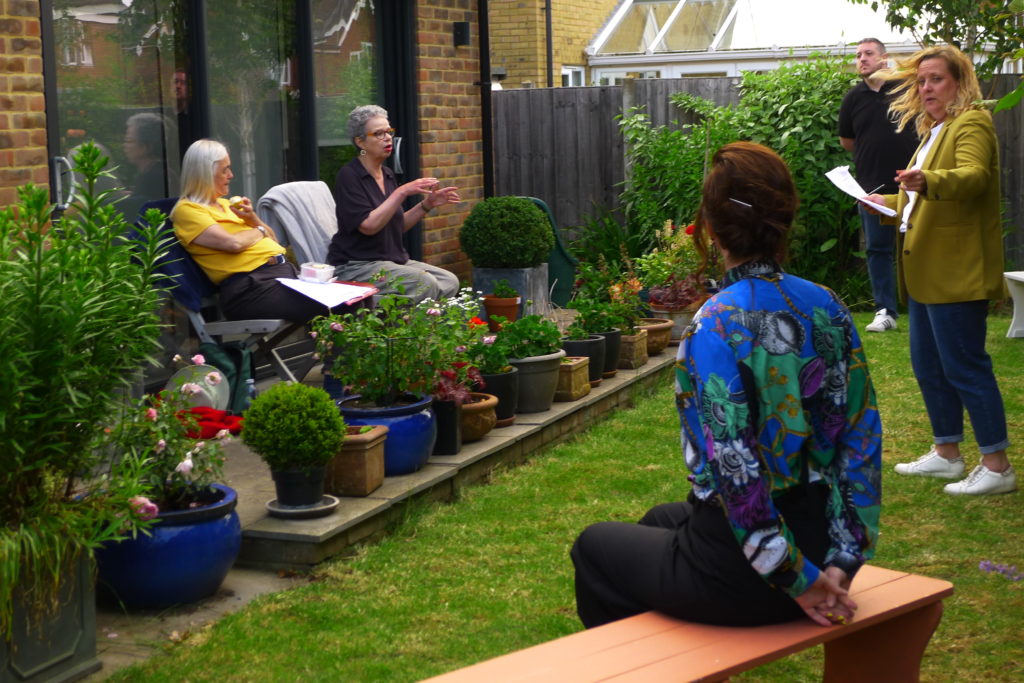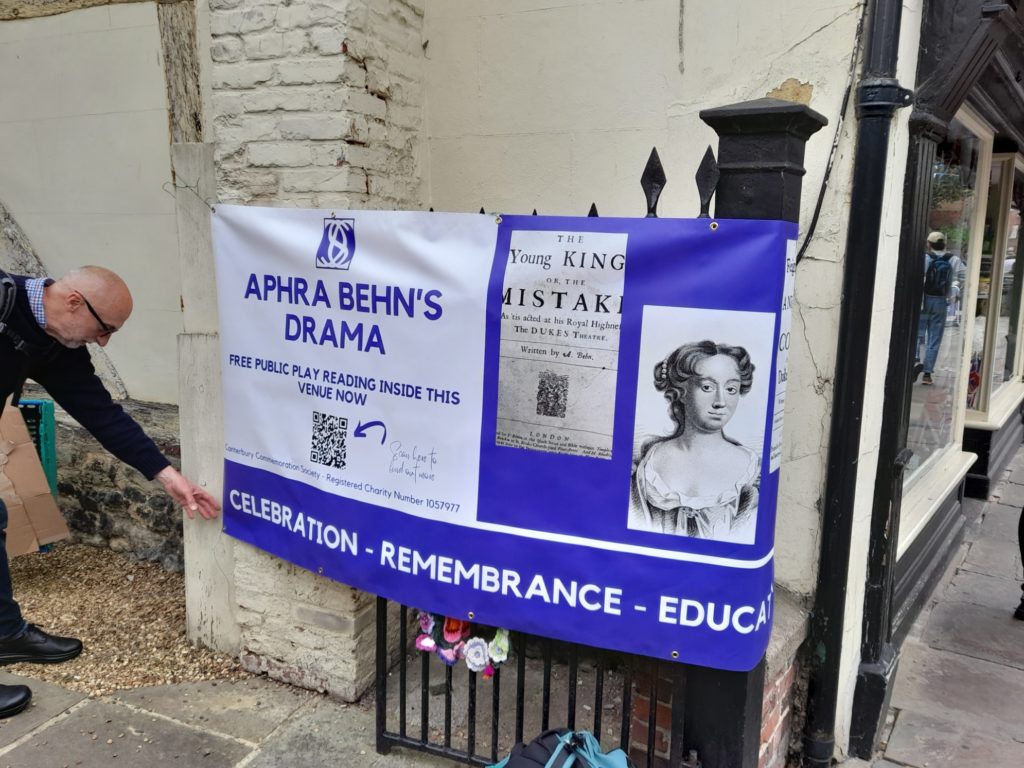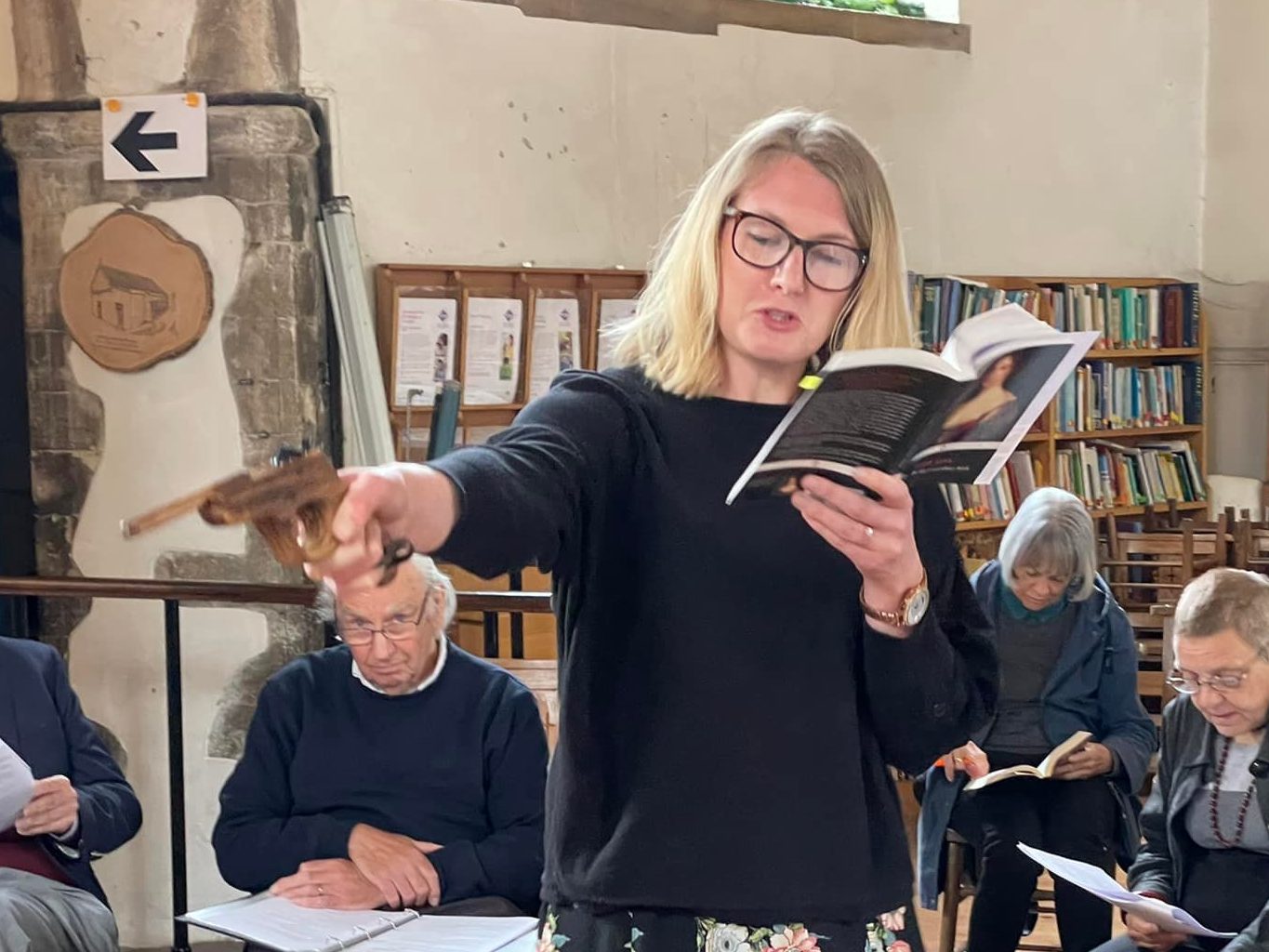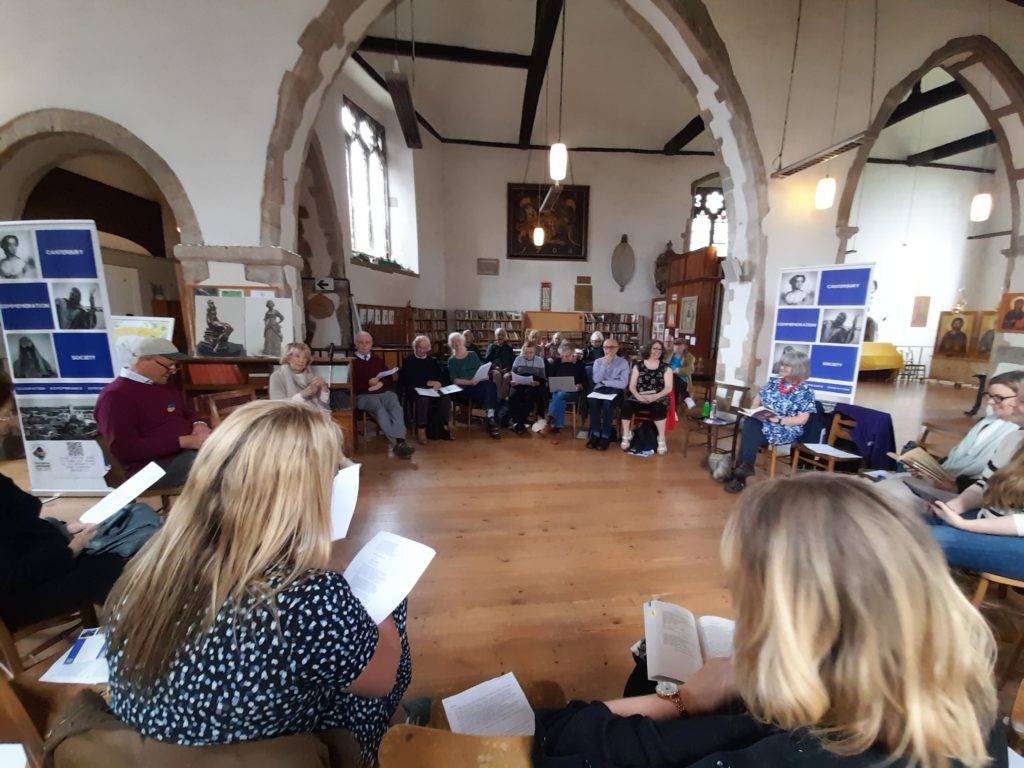On Sunday evening, 12 June, I was privileged to sit in on a rehearsal of the extracts from Behn’s The Amorous Prince that the Canterbury Players will be performing at a Garden Party being held by the Aphra Behn Society of Canterbury on 9 July. The cast, directed by Sally Elkerton, have been rehearsing around their day jobs since the middle of May, and are at that wonderful stage in their work where they’re not only (pretty much) off-book, but also well placed to experiment with the physical choices of staging, as well as different ways of playing exchanges.
They are working with a script that I created for them by modernising the text that will appear in Volume I of The Cambridge Edition. After I had sent Sally the whole play, we worked out together which sections would work best for the limited time – 20 to 25 minutes – that we have on 9 July. And Sally drafted some brief narrations that will enable our audience to follow the – sometimes terrifying – developments in the characters’ relationships.
When I was first working on the script, I was mostly struck by how radical The Amorous Prince is in its presentation of royal power and male violence. That became all the clearer as I watched Frederick, the amorous prince (David Keen) move from his seduction of the young, naive Cloris (Emma Willetts) to calmly advising Laura (Emma Ozenbrook) that, given his power, she had better give him what he demands – her body. The play has never, as far as I know, been performed since its premiere in 1671. It should be much better known by those interested in Behn’s later plays.

In this picture, the narrator (Lisa Nightingale) directs the audience’s attention to Laura, so that no-one can miss the fact that she is concealing a knife. Frederick, about to enter and make his demands of Laura, watches from offstage, and Sally at this moment intervenes to nudge the cast to make the sequence even more chilling. Not in the picture is Cloris – not only is she not in this scene, but Emma Willetts doubles as a sax-player whose brief interventions both set the mood and guide the transitions.
What happens once Laura draws her knife on Frederick? Well, you might have to come along to the Garden Party of the Aphra Behn Society of Canterbury on 9 July to find out. Or you could read the play – though you’d miss all the skill and wisdom that the Canterbury Players are bringing to the event. Tickets are still available via Eventbrite.



Recent Comments